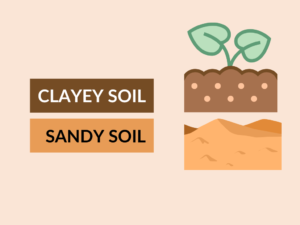What is Compost?
Compost is an organic matter that is created through the decomposition of various organic materials such as food scraps, garden waste, and leaves. It is a nutrient-rich substance that is often used as a fertilizer and soil amendment.
Examples of Compost
- Grass clippings
- Vegetable scraps
- Tree trimmings
- Coffee grounds
- Straw
Uses of Compost
Compost has several uses in gardening and agriculture:
- Improving soil structure and fertility
- Enhancing plant growth
- Controlling soil erosion
- Suppressing plant diseases
- Reducing the need for chemical fertilizers
What is Vermicompost?
Vermicompost, also known as worm castings, is a type of compost that is produced with the help of worms. The organic material is consumed by earthworms, and their digestive system breaks it down into nutrient-rich castings. Vermicompost is highly valued for its soil-enhancing properties.
Examples of Vermicompost
- Manure from vermiculture systems
- Food waste processed by worms
- Bedding materials such as shredded newspaper
Uses of Vermicompost
Vermicompost has various applications in agriculture and horticulture:
- Improving soil structure and aeration
- Enhancing nutrient availability for plants
- Increasing water retention in soil
- Promoting beneficial microbial activity
- Reducing soil-borne diseases
Differences between Compost and Vermicompost
| Difference Area | Compost | Vermicompost |
|---|---|---|
| Nature of Decomposition | Decomposition occurs through natural processes like microbial activity and temperature | Decomposition occurs with the help of earthworms’ digestive system |
| Speed of Decomposition | Slower decomposition compared to vermicompost | Faster decomposition due to the involvement of worms |
| Smell | May have a strong odor during the decomposition process | Less or no smell due to efficient breakdown by worms |
| Cost | Lower cost as it mainly requires organic waste materials and time for decomposition | Higher cost due to the need for worm bedding, maintenance, and monitoring |
| Microbial Activity | Presence of various microorganisms involved in decomposition | Rich in beneficial microorganisms due to worm digestion |
| Macro and Micronutrients | Contains a wide range of nutrients but may have fewer bioavailable nutrients | Rich in both macro and micronutrients with higher bioavailability |
| Application | Can be used directly as a top dressing or incorporated into the soil | Best used as a soil amendment or potting mix component |
| Time Required | Takes several months to years to obtain mature compost | Requires relatively less time due to the involvement of worms |
| Space Requirement | Large space required for compost piles or bins | Requires a smaller space as worm bins can be compact |
| Relative Moisture | Moderate moisture content required for decomposition | Higher moisture content required for worm survival and activity |
Conclusion
In conclusion, compost and vermicompost both offer numerous benefits to soil health and plant growth. However, their creation process, properties, and specific uses differ. Compost is made through natural decomposition, while vermicompost is produced with the help of worms. Compost takes a longer time to decompose, has a wider range of raw materials, and requires less maintenance compared to vermicompost. On the other hand, vermicompost decomposes faster, has higher nutrient availability, and promotes specific microbial activity. The choice between compost and vermicompost depends on the specific needs of your plants and the resources available.
People Also Ask
1. What is the difference between compost and vermicompost?
Compost is created through natural decomposition processes, while vermicompost involves the use of worms. Compost takes more time to decompose, has a wider range of raw materials, and is cost-effective. Vermicompost decomposes faster, has higher nutrient availability, and requires more maintenance.
2. Can compost and vermicompost be used together?
Yes, compost and vermicompost can be used together to maximize the benefits for soil health and plant growth. Their combined application can provide a wide range of nutrients and enhance soil structure and fertility.
3. Is vermicompost better than compost?
Whether vermicompost is better than compost depends on specific needs and preferences. Vermicompost decomposes faster, has higher nutrient availability, and promotes beneficial microbial activity. However, compost is easier and cheaper to produce, and it also provides valuable organic matter to the soil.
4. Can vermicompost replace chemical fertilizers?
Vermicompost can significantly reduce the need for chemical fertilizers, as it provides a rich source of nutrients for plants. However, the complete replacement of chemical fertilizers depends on factors such as the specific plant’s requirements, soil conditions, and other nutrient sources.
5. How long does it take to make compost and vermicompost?
Compost typically takes several months to years to fully decompose, depending on factors such as the raw materials used and the environmental conditions. In contrast, vermicompost can be produced within a few months due to the involvement of worms in the decomposition process.


